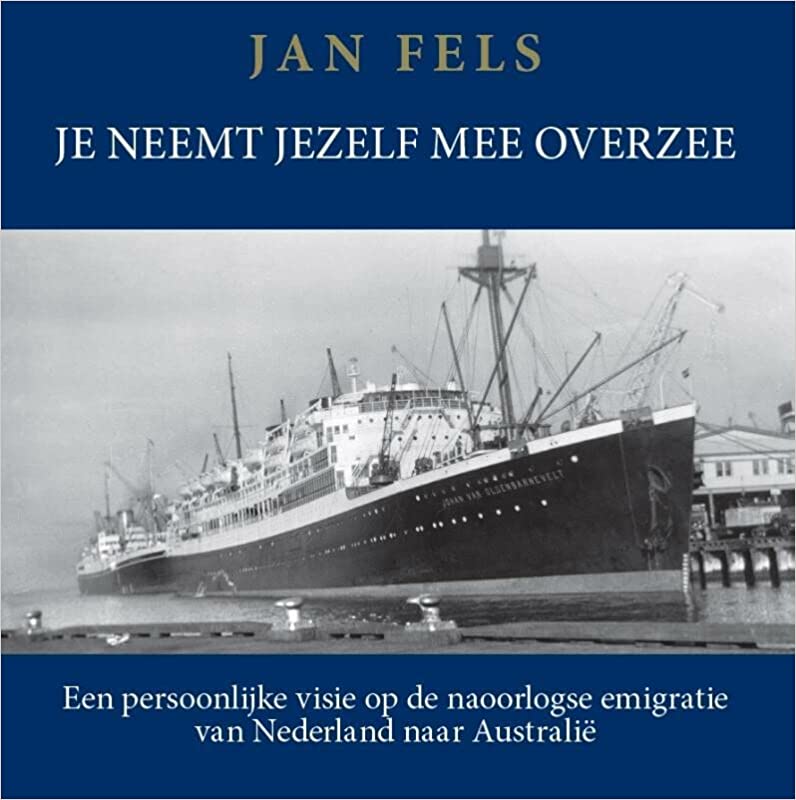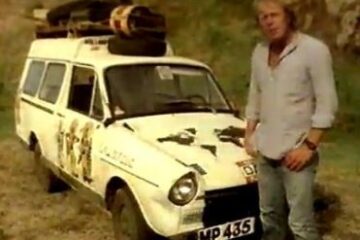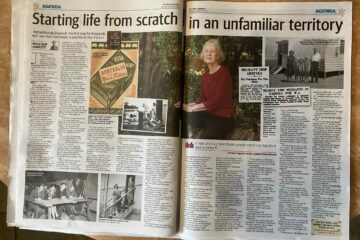
A book by Jan Fels and Brenda van Dijk provides a personal perspective on the Dutch migration experience in Australia. The book, titled “Je neemt jezelf mee overzee: Een persoonlijke visie op de naoorlogse emigratie van Nederland naar Australië” (You Take Yourself Overseas: A Personal Perspective on Post-War Emigration from the Netherlands to Australia), was published in 2017.
The book is a collection of essays and interviews with Dutch emigrants who relocated from the Netherlands to Australia during the post-war period. The essays and interviews cover a wide range of topics, including the motivations for emigrating, the challenges of adjusting to a new country, and the successes of building a new life in Australia.
The book was written by Jan Fels and Brenda van Dijk, both of whom are Dutch emigrants who now live in Australia. Fels emigrated to Australia in 1959, and van Dijk emigrated in 1963. They both have a deep understanding of the Dutch migration experience, and they bring their own personal perspectives to the book.
The book is a valuable resource for anyone who is interested in learning more about the Dutch migration experience. It provides a unique and personal perspective on the challenges and joys of living in a new country. It is also a valuable resource for anyone who is considering emigrating to Australia, as it provides insights into the challenges and opportunities that Dutch migrants face in the emigration process.
Here are some of the topics that are covered in the book:
- The motivations for emigrating to Australia: The book explores the reasons why Dutch people decided to emigrate to Australia. Some of the reasons cited include the desire for a better life, the search for adventure, and the need to escape from the post-war turmoil in Europe.
- The challenges of adjusting to a new country: The book also explores the challenges that Dutch migrants faced when they first arrived in Australia. These challenges included the language barrier, the different climate, and the unfamiliar culture.
- The successes of building a new life in Australia: The book also celebrates the successes of Dutch migrants who were able to build a new life for themselves in Australia. These successes include finding good jobs, raising families, and becoming involved in their communities.
- The impact of emigration on individuals and their families: The book also explores the impact of emigration on individuals and their families. Some of the impacts cited include the loss of contact with friends and family back home, the need to adapt to a new culture, and the challenges of raising children in a new country.
The book is well-written and engaging, and it provides a valuable insight into the Dutch migration experience.
Jan Fels
Jan Fels emigrated to Australia twice in his life; the first time with his mother, the second time with his wife. Twice he was at a crossroads after a few years: return now or stay ‘forever’? It became the first, but Australia has never let go of Jan. He kept a close eye on developments in the country. What started as a random collection of newspaper clippings and books, caused by ‘nostalgia’ for Down Under, turned into a serious search for all things emigration to Australia. Fels collected facts, figures and reports from official bodies, interviewed emigration officials and dozens of emigrants, and plowed through more than 50,000 registration cards. His search resulted in this book. His personal account and findings shed a new light on (r)emigration. Which government interests were involved? How did the Dutch fare in the field of work? How did the Aussies see the emigrants? How did the information officers continue to do their job over the years after criticism of the rosy information? And perhaps the key question: when are you successful as an emigrant? Jan Fels (1939) is an economist. In Australia he contributed to the urban development of Melbourne, in the Netherlands he worked at Projektburo Almere of the Rijksdienst IJsselmeerpolders, which drew up plans for the new growth center of Almere to be built. At the end of his career he taught economics.
See also: Dutch immigration to Australia, history, stats and other resources


